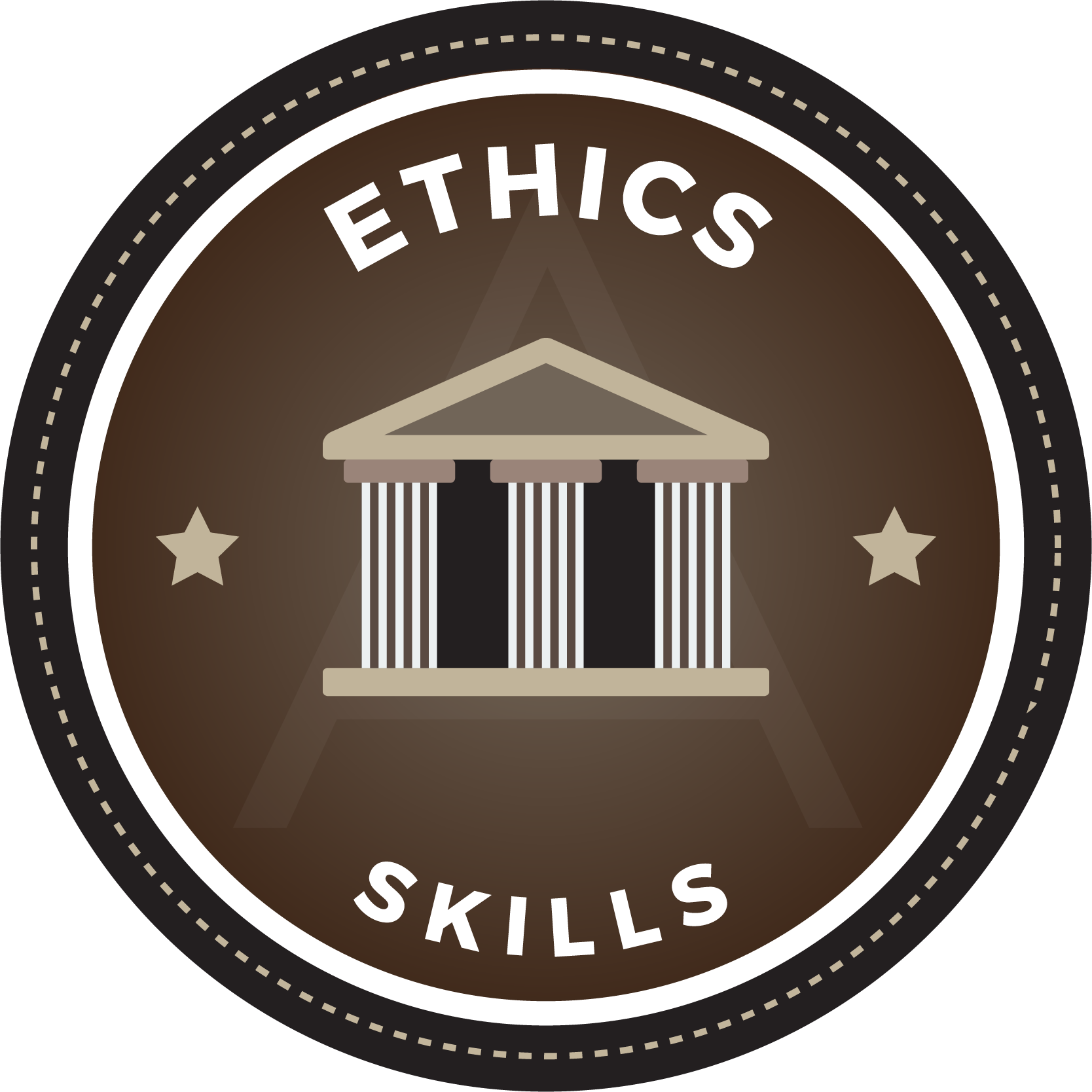How to Demonstrate Ethics on Casper®

About Ethics
The term "ethics" is likely very familiar to you. It is at the core of every health professional's practice.
Ethics is a multidimensional concept, encompassing not just behaviors such as acting with integrity, honesty, and morality, but also the reasoning behind the behaviors.
Ethics as a Skill: What Does That Really Mean?
More than just doing the "right thing,", ethics is the process of reflecting on why something might be right or wrong in a particular situation and is often a collective effort. Most ethical issues are not straightforward, but when you are exercising ethics as a skill, you can work through the ambiguous areas by consulting people you trust.
There are four key basic ethical principles in a healthcare setting:
- The most important principle is probably something you have heard of before: First, do no harm (non-maleficence). It can sometimes be difficult to apply this principle, and the harm is weighed against the good that can be achieved.
- Doing good (beneficence) means that you will strive for the net benefit of good for a patient. Who decides what constitutes that benefit?
- The patient may have a different idea than you do, and you must respect their beliefs and decision-making ability (autonomy).
- What if the results of these decisions come into conflict with the needs of others? The needs of one must be balanced with the needs of many (justice).
Ethics in a Professional Setting
In order to better understand how to perform well on equity metrics on Casper, it is helpful to understand why this is being measured in the first place.
Why are medical schools and other health professions programs so interested in assessing ethics?
Let's look at an example in a professional context for some insight. Below, we'll share an example of expertly applied ethics.
Dr. Khan reached into the pocket of her white coat as her pager beeped. She checked the number: the emergency department. She picked up her cell phone and called the listed number, "This is Dr. Khan."
"Hi Dr. Khan, its the emerg resident on call. I've got a patient consult for you." She grabbed a pen. "Go ahead."
"Stable 41-year-old female presenting with abdominal pain. She states that she has swallowed a lightbulb. She is-" Dr. Khan interrupted. "Is this Shirley?"
The resident said yes, and Dr. Khan sighed. She had treated Shirley many times before, always with the same story. Shirley swallowed glass of some sort and then showed up to the emergency department, necessitating a call to GI for an endoscopy. Shirley was a resource-intensive patient, requiring admission with observation after the endoscopy as well as consults to psychiatry.
One such visit, Dr. Khan had removed the glass from Shirley's stomach and she was lying on her hospital bed in the recovery room. The nurse walked away to check on another patient and Shirley got up, walked straight out of the hospital and across the street to a dollar store. She purchased and then immediately swallowed another lightbulb, walking calmly back into the emergency department.
Dr. Khan wondered if she could refuse to treat Shirley. Shirley was draining valuable and limited hospital resources, and clearly derived satisfaction from the hospital visits. She wasn't going to stop doing this to herself, and treating Shirley seemed to reinforce her behavior. On the other hand, Shirley was a patient who needed help. Dr. Khan contemplated the situation and decided to consult the hospital's clinical ethicists.
They discussed the issue and decided that Dr. Khan had a clinical obligation to treat Shirley every time she needed it. They had considered the fact Shirley was using valuable resources on a self-inflicted medical issue, but decided that withholding treatment would constitute unacceptable harm to the patient.
Dr. Khan was satisfied with the decision and fulfilled her ethical obligation to Shirley.
***
Expert application of ethics can change the course of a patient's treatment and the process of ethical reasoning can resolve complicated situations, both in healthcare and outside of it.
Dr. Khan had a valid ethical reason to decline treating Shirley (justice for other patients who needed the resources), but the process of ethical reasoning went beyond identifying just one ethical principle at play, and looked at each of the competing principles to achieve the most ethical outcome.
Given this example, you can understand why medical schools and other health professions programs find it a necessity to choose applicants with excellent ethical skills.
So How Does Casper Evaluate You on this Skill?
Casper poses common scenarios and reflective questions aimed to determine if you possess the People Skills that you will eventually require to be a successful professional. Start Practicing
Are you READY for Casper?
We prepare candidates for Casper with practice questions, strategies to improve critical thinking skills, scoring on our simulated tests, and one-on-one coaching sessions to maximize performance on Casper. Let's get you ready!
Simulated Casper Tests
Challenge your Casper skills with 4 difficult Simulated Casper Tests (Levels 1-4). Start at Level 1 and increase the level of difficulty!
Starting at $27 Go to Simulated TestsSimulated Prep Courses
Learn strategies for answering difficult Casper questions and convert beginner to advanced answers.
Bundles with Coaching
Fast-track your skills with our bundles (simulations and courses with scoring and coaching add-ons) to identify weak areas.
Starting at $197 Go to our Bundles